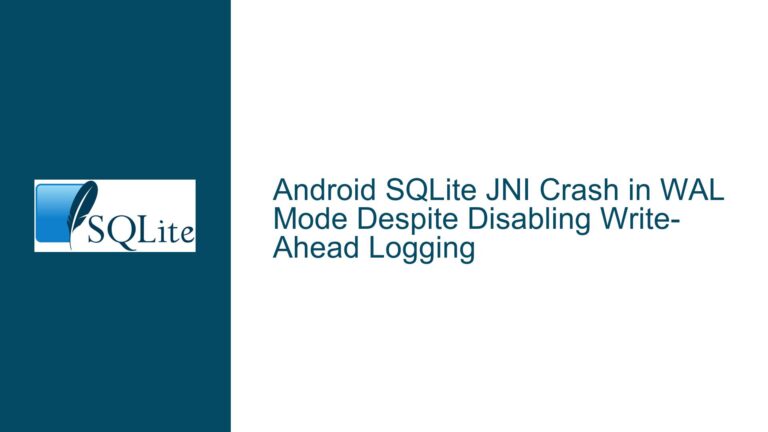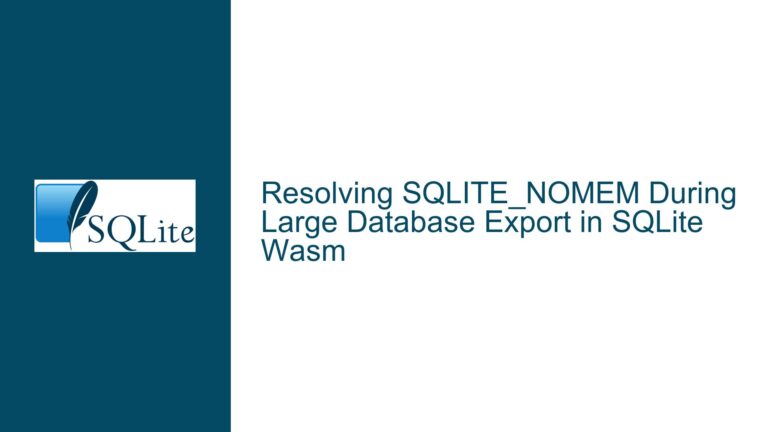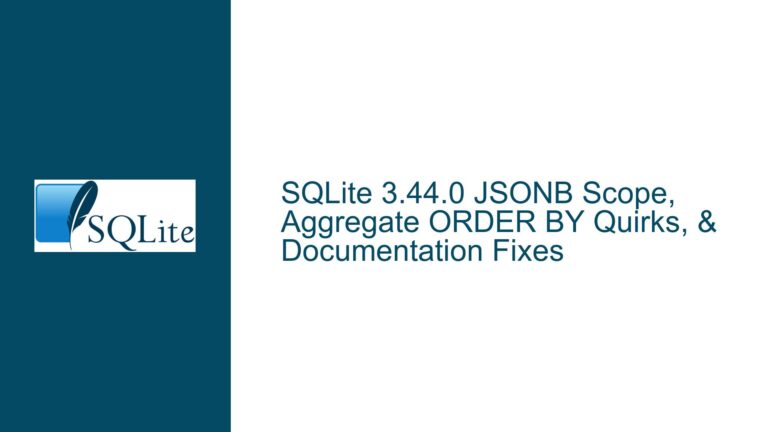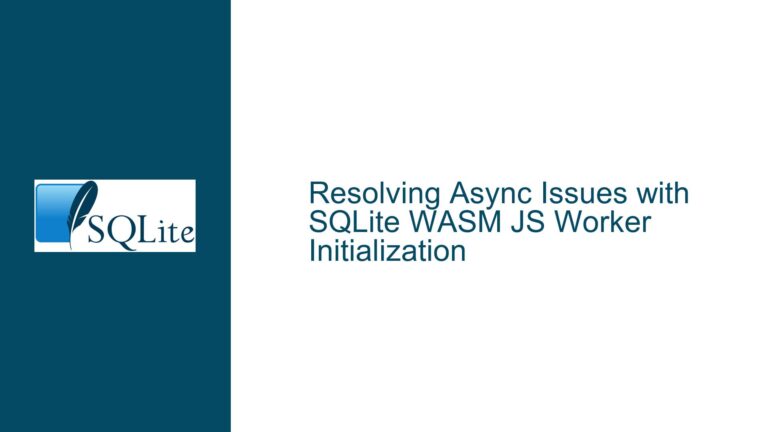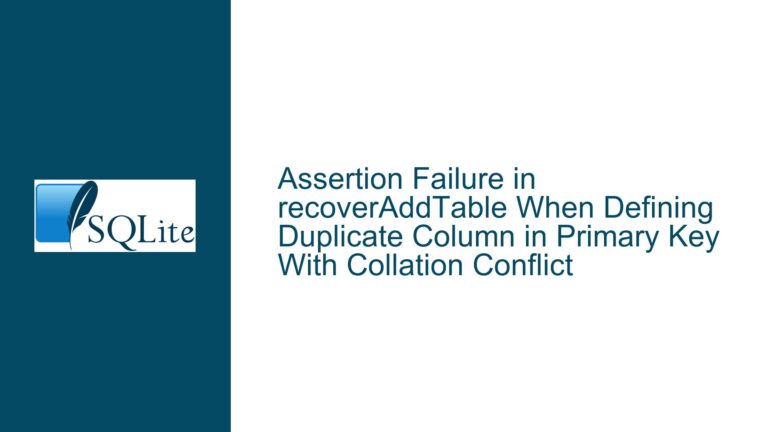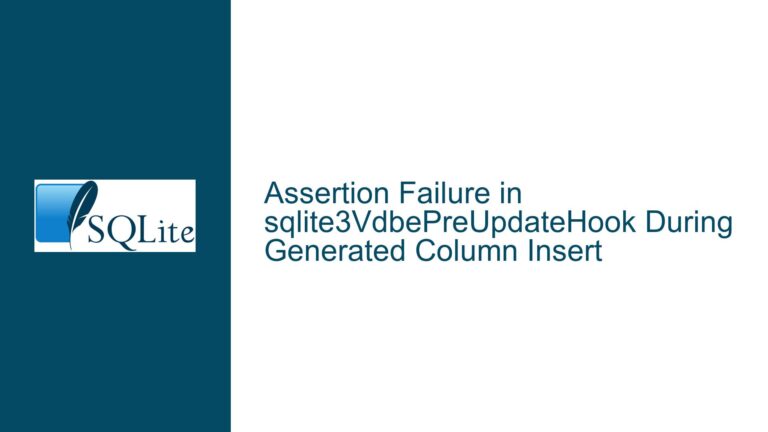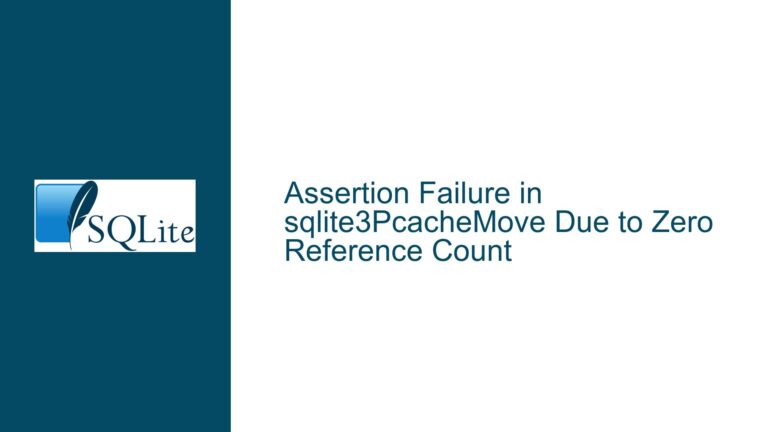Android SQLite JNI Crash in WAL Mode Despite Disabling Write-Ahead Logging
Database Transaction Commit Failure in WAL Mode After Explicit Disabling The core issue revolves around an Android application experiencing a native crash during SQLite transaction commits, specifically within Write-Ahead Logging (WAL) subsystem functions such as walIndexAppend, despite the developer explicitly disabling WAL mode via SQLiteDatabase.disableWriteAheadLogging(). The crash occurs in Android 9 (API 28) devices, with…
